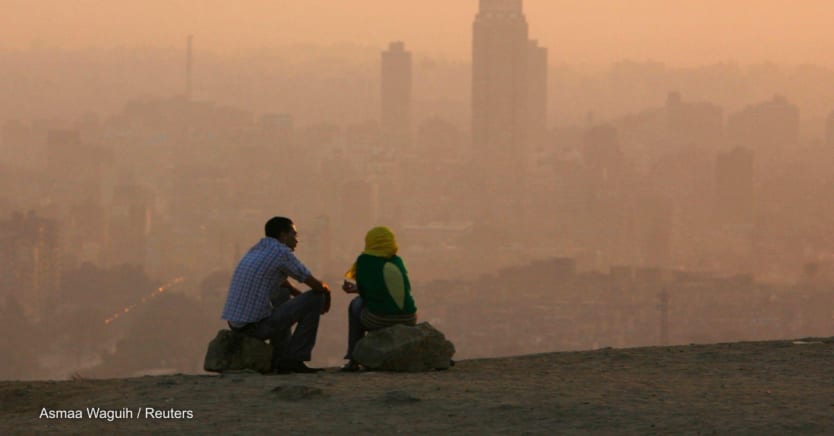Air, water pollution cost MENA economies 2% in GDP losses: World Bank

Middle Eastern and North African economies lose an average of 2% of GDP each year because of air and water pollution, according to a new World Bank report.
Sign up for Devex Invested
The must-read weekly newsletter that keeps you up to date with news about business, finance, and the SDGs.
The new “Blue Skies, Blue Seas” report cautioned that more economic losses are yet to come, with coastal erosion getting worse and likely to hurt the vital tourism industry. In Morocco and Tunisia, for example, tourism makes up 10% of GDP.
The report said the region is the only area in the world which failed to decouple greenhouse gas emissions from economic growth and is exceptionally slow-moving on reducing their economies' reliance on carbon emissions.
“What we see in the report is virtually any indicator we look at and try to analyze shows significant deterioration,” said Martin Heger, one of the report’s authors, speaking Monday at a launch event.
Among the economies hardest hit are Egypt, Lebanon, and Yemen, where the damage to GDP goes up to 3%, while some of the wealthy Gulf countries, such as Qatar, are the least affected.
Plastic waste is another concern, since the materials break down into microplastics that make their way into human food systems, causing lasting health damage.
“The Mediterranean is among the world’s most plastic-polluted seas, with as much plastic flowing into it each year as the volume of fish taken out from the two most commonly caught species,” the report said.
Ferid Belhaj, the global lender’s vice president for MENA, said the region needs millions of new jobs for its young population, and only the private sector can create opportunities at scale.
“Private investment today is very much tilted towards green,” Belhaj said, urging a swift transition in a region that heavily subsidizes so-called “brown industries,” including the oil sector.
Yasmine Fouad, Egypt’s environment minister, noted governments face pushback from citizens when they implement forms, but insisted the onus was on state authorities to educate the public, including on health risks from air pollution.
“If we keep the people in the dark, we are not doing any good,” she said.

Search for articles
Most Read
- 1
- 2
- 3
- 4
- 5
